‘The scope is good. But it's not that simple’
The future of Tau children's book festival was discussed in the Kazan City Hall
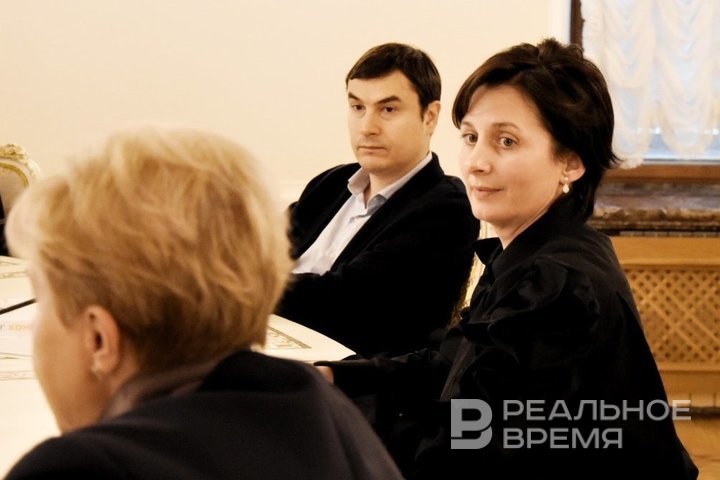
Tau children's book festival was recently held in Kazan, and last week, at a closed discussion in the Kazan City Hall, founder of Happy Stories charity foundation and Tau festival Irina Khusnutdinova discussed the further development of the festival with Vice Minister of Culture of the Republic of Tatarstan Damir Natfullin and representatives of the Russian book industry. Book reviewer of Realnoe Vremya Ekaterina Petrova, who was present at the discussion, tells us what proposals the participants had and what problems they voiced to the representative of the Ministry of Culture.
Growth points
Tau children's book festival has been held in Kazan since 2022. It is not old, but Irina Khusnutdinova has attracted major players in the Russian book industry to participate during this time. This year, the festival included not only traditional Glagolitsa award but also several other competitions for children who write. In addition to writers and poets who came to meet with readers, Tau hosted an exhibition of illustrations from the Russian State Children's Library. Director of the library Maria Vedenyapina noted: “Leaders of Book Illustration is a project aimed at ensuring that children's book illustration takes the same important place as writing or poetic authorship. Because a children's book artist is the same co-author as the author of the text.” Vedenyapina also added that some illustrations were exhibited for the first time.
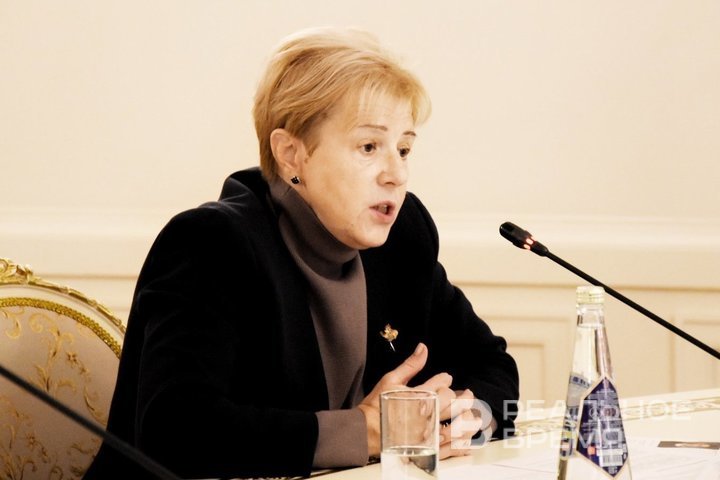
The library also has a project called The Big Expedition of Children's Reading, which tours around Russian cities. Thus, librarians from different parts of the country can exchange experiences in introducing children to reading. Maria Vedenyapina suggested bringing this project to the next Tau festival and expanding its format: not only for children, but also for specialists who work with children.
Ildar Davletchin, director of Leto Republican Centre, spoke about another approach to popularising children's reading — through the integration of libraries into the work of children's camps. “The COVID story pushed us to this step,” Davletchin noted. “When libraries, writers and books themselves came to the camps, it turned out to be a great idea.” The last book shifts were organised for children from vulnerable groups: with diabetes, from mobilised families and children in difficult life situations. Davletchin emphasised: “It turns out that everyone loves to read. In seven days, the children created and published an entire book. They received the result of their work, and this is incredibly important.”
Davletchin proposed new ideas for integrating Tau festival into the work of children's camps. “There are currently 126 country camps in the republic. We can organise regional stages of competitions and awards, republican and even federal ones. For example, we can hold a stage of the camp counsellor skills competition related to the popularisation of reading as part of Tau festival,” Davletchin suggested.
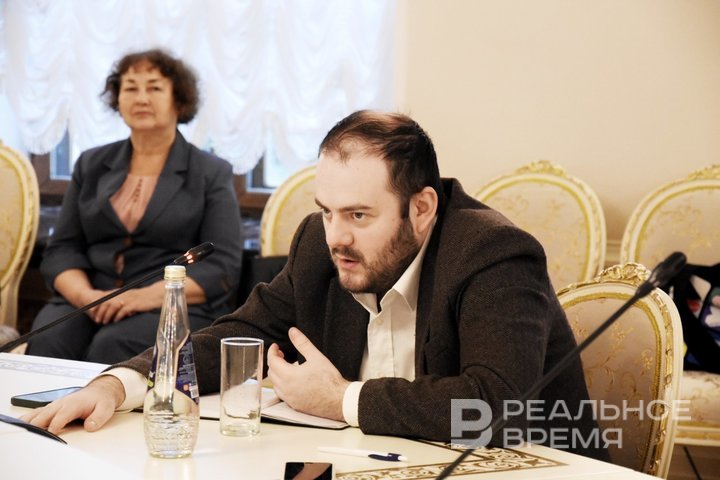
Publisher of Yunost literary magazine Mikhail Samoilov expanded on the topic of camps and suggested strengthening the interaction between writers and readers. “The question of a book festival rests on how to connect the reader with the writer,” Samoilov noted. “Today we have a lot of one-man media in the form of blogs and the like, but there is almost no direct communication left. Perhaps it is worth thinking about combining writers' residences and festivals.”
Such integration would allow writers to be in close proximity to the audience. According to Samoilov, this eliminates the need to organize separate events and makes festivals more accessible to children and their parents. He also suggested developing cooperation with writers' associations. For example, setting up a writers' residency in Tatarstan before the festival. This will allow combining events with direct meetings of writers and readers, making the process more lively and intense.
Samoilov's idea was complemented by the idea of Sergey Shargunov, chairman of the Association of Writers and Publishers of Russia, editor-in-chief of Yunost magazine and a writer. He suggested setting up children's literature residencies in Tatarstan, as well as including Glagolitsa participants in workshops that the association holds throughout Russia. “Our workshops operate in all federal districts,” he noted. “This is the most important tool for captivating a child not only with books, but also with the process of their creation. A residency in Kazan would be an excellent addition to these projects.”
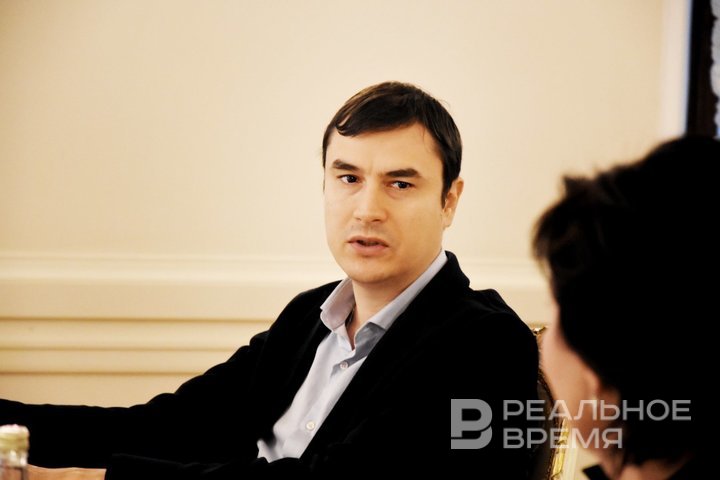
Shargunov also touched on the topic of educating parents. According to him, to introduce children to reading, you need to start with adults. “It is important that parents read themselves and have a cultural compass. We often see that many have no idea about either classical or modern literature. Perhaps it is worth considering over a literacy programme for adults,” added Shargunov.
Support is needed, and not always financial
More than 2,000 people applied for the events of Tau children's book festival with pre-registration, another three hundred people came to the festival in an organised manner from other cities. This does not include the children who participated in Glagolitsa and visitors who came without registration. It was a bit cramped for Moskovsky cultural centre. Next year, the city is ready to provide another site for the festival. Presumably, in September 2025, Tau will be held at Gorky Park.
“The scale is good. It may seem that everything is fine with us, there are no problems, and we can handle it ourselves. But it’s not that simple,” noted Irina Khusnutdinova. The fact is that another site requires significantly more resources. “The park needs development: stages, tents, etc. This is already a lot of money. We would like to draw the attention of potential sponsors and come up with an initiative to develop a book festival by addressing rais of the Republic of Tatarstan,” Khusnutdinova told Vice Minister of Culture of the Republic of Tatarstan Damir Natfullin. In addition, she noted the importance of increasing the prestige of patronage in culture and developing projects for children. Not so much from government agencies as from business representatives.
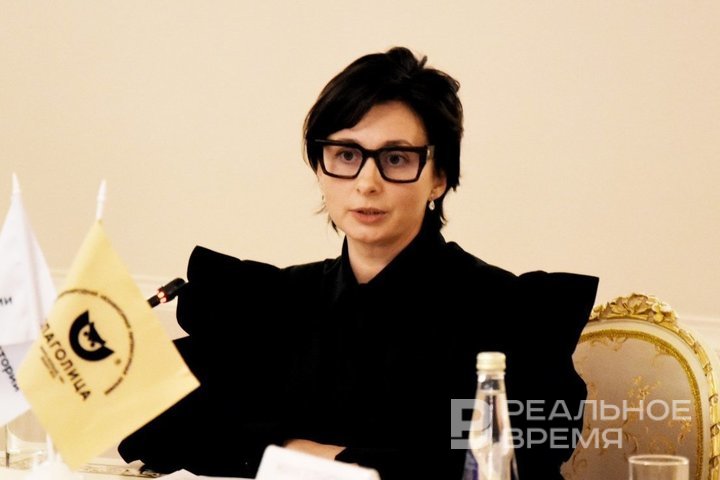
The idea of holding the festival in the park was supported by Irina Mukhametgareyeva, Director of the Minnullin Republican Children's Library. She cited the Mobile Library project as an example. According to her, this project showed how important “an off-site outlet to people” is. “Not everyone can get to the library. We went to parks and squares with our project and saw how much people need us. We even have regular readers who know our working hours. Parents want to introduce their children to reading in nature, in comfortable conditions,” Mukhametgareyeva noted. She suggested that this effect could be stronger at the festival due to meetings with writers, master classes and other activities.
Irina Khusnutdinova herself suggests making the festival not a seasonal story but developing projects within the festival. And it is assumed that these projects will work throughout the year. Tau will be the final point of this work for the year. As an example, she cited the In-Class Readings project, but it had to be closed. It was for children who lived in specialised boarding schools and whose parents were deprived of their rights. Happy Stories foundation selected readers on a competitive basis who came to these schools and read complex works from the school curriculum to children, then together they analysed the texts and the author's intent. Irina said that the children were looking forward to these meetings. But the foundation faced a lack of understanding from school directors, and the project had to be closed. And in this case, the problem was not with funding.
“Private foundations need state support. It is not always expressed in monetary terms. We need media support, sometimes administrative resources in the Ministry of Culture, the Ministry of Education, the Ministry of Youth,” added Khusnutdinova.
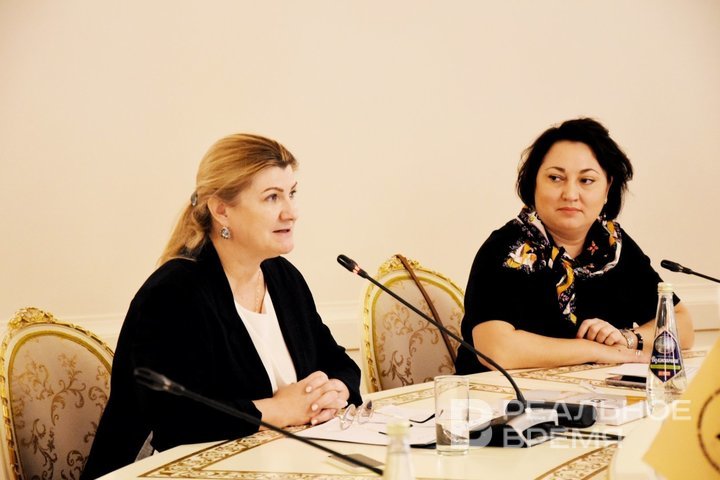
Chairman of Educating a Reader Association Anzhela Lebedeva also supported the further expansion of Tau. The same Association represents the International Board on Books for Young People (IBBY) in Russia, which nominates Russian authors and illustrators for international awards, and also closely cooperates with Happy Stories Foundation in holding Glagolitsa award. “Throughout our activities, we have nominated two wonderful authors from Tatarstan. It is Rafael Gazizov and Robert Minnullin. They were our honorary guests at the Russian State Children's Library and received awards abroad. I personally flew to China with Rafael Gazizov where the president of the International Board presented him with the award,” added Lebedeva. By the way, the project of the children's book festival Tau was presented last year at the International Congress on Children's Books.
In addition, Sergey Shargunov promised to support the authors of Glagolitsa award. “Yunost magazine will definitely publish poems of talented children. By the way, many are written at a very high level. What I read is really alive and talented. In general, very often we forget such a simple category as alive. But this is very important for the children themselves. Real children's literature is as if overheard from them. This is something that should captivate, something you believe in. And when the children themselves write something alive, bright, then it is worth a lot,” Shargunov said.
The creation of a residence for writers, the expansion of formats for interaction with readers and the publication of children's works — this is how Tau may look next year.
Ekaterina Petrova is a book reviewer of Realnoe Vremya online newspaper, the author of Poppy Seed Muffins Telegram channel and founder of the first online subscription book club Makulatura.